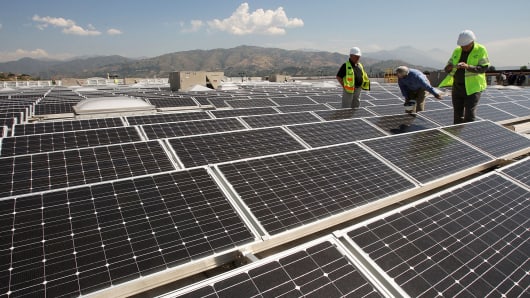In 2005, Walmart announced a goal to be fully supplied by renewable energy sources, and to work to avoid and reduce greenhouse gas emissions. We didn't set this goal because anyone forced us to.
We set it because we wanted to help address climate change and improve lives, while also strengthening our company and reducing expenses. We thought it would be a win-win: good for society, and good for Walmart.
Eleven years later, that's exactly what we've seen. By investing in solar energy, for example, Walmart has contributed to less greenhouse gas emissions, and helped create thousands of jobs for American solar companies. Walmart is now one of America's leading commercial solar and on-site renewable energy users, and gets about 25 percent of its global energy from renewable sources.
To give another example, by doubling the efficiency of our U.S. fleet from 2005 to 2015, Walmart avoided the emission of nearly 650,000 metric tons of CO2, while also saving nearly $1 billion in the past fiscal year.
This experience is a big reason why I chose to join the "Risky Business Project," which is co-chaired by former New York City Mayor Michael Bloomberg and former U.S. Treasury Secretary Hank Paulson.
The Project's first report, released in 2014, concluded that global climate change posed a serious risk to America's economy. It detailed pressing dangers to businesses large and small—such as lower crop yields, increased health costs, and disaster-caused property losses.
In December, the Project released its latest report—focusing on how to respond to those risks. It concludes that private businesses have an unmatched opportunity to help the U.S. mitigate the risks from climate change. Because companies have such size, scale, and reach, great progress can happen if they lead the way.


